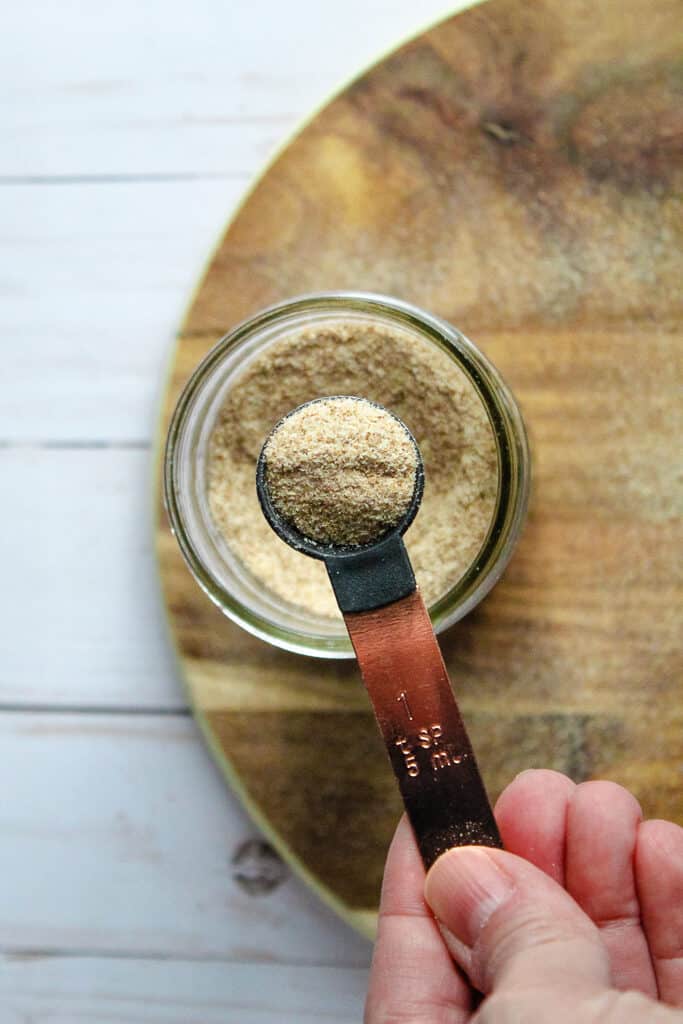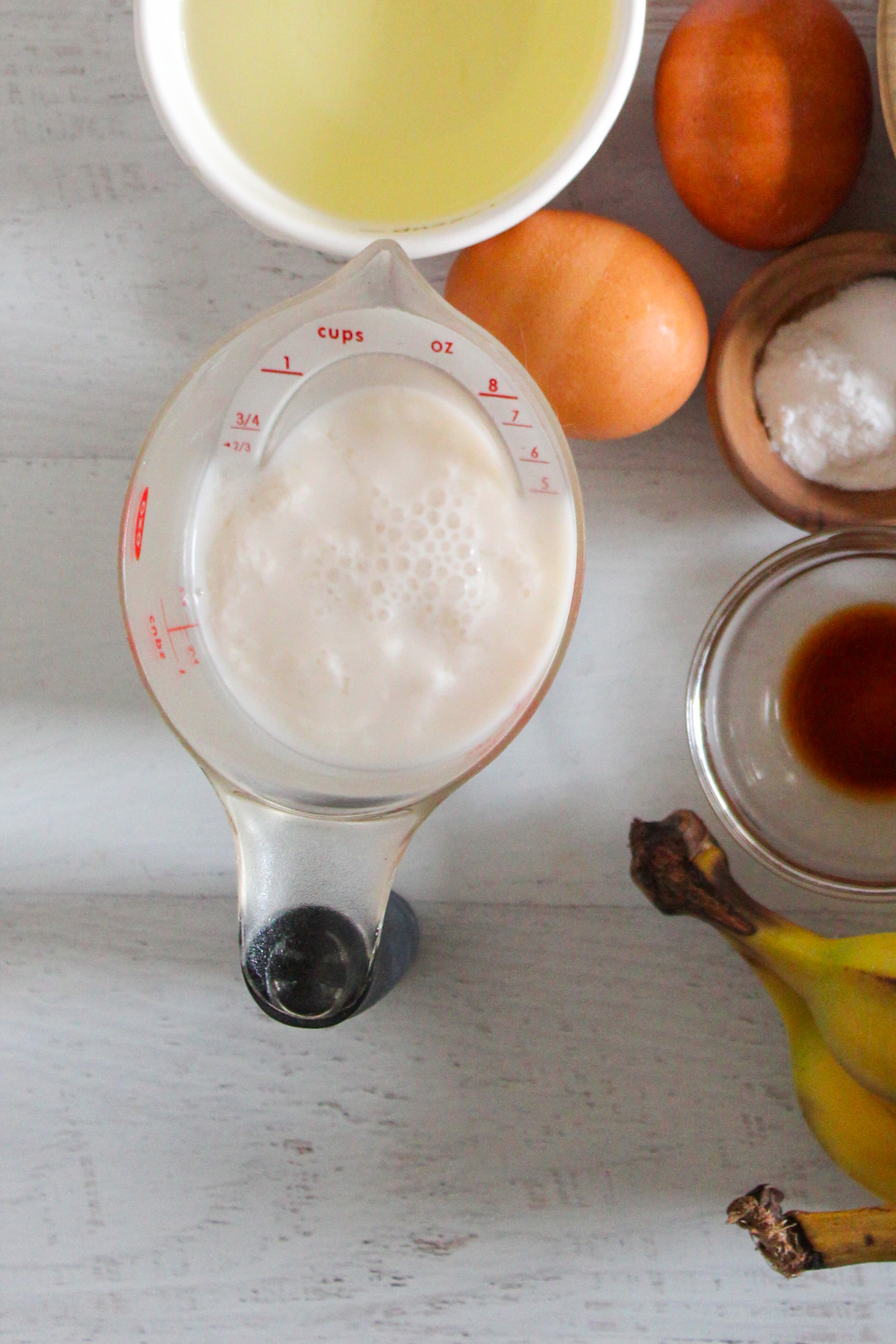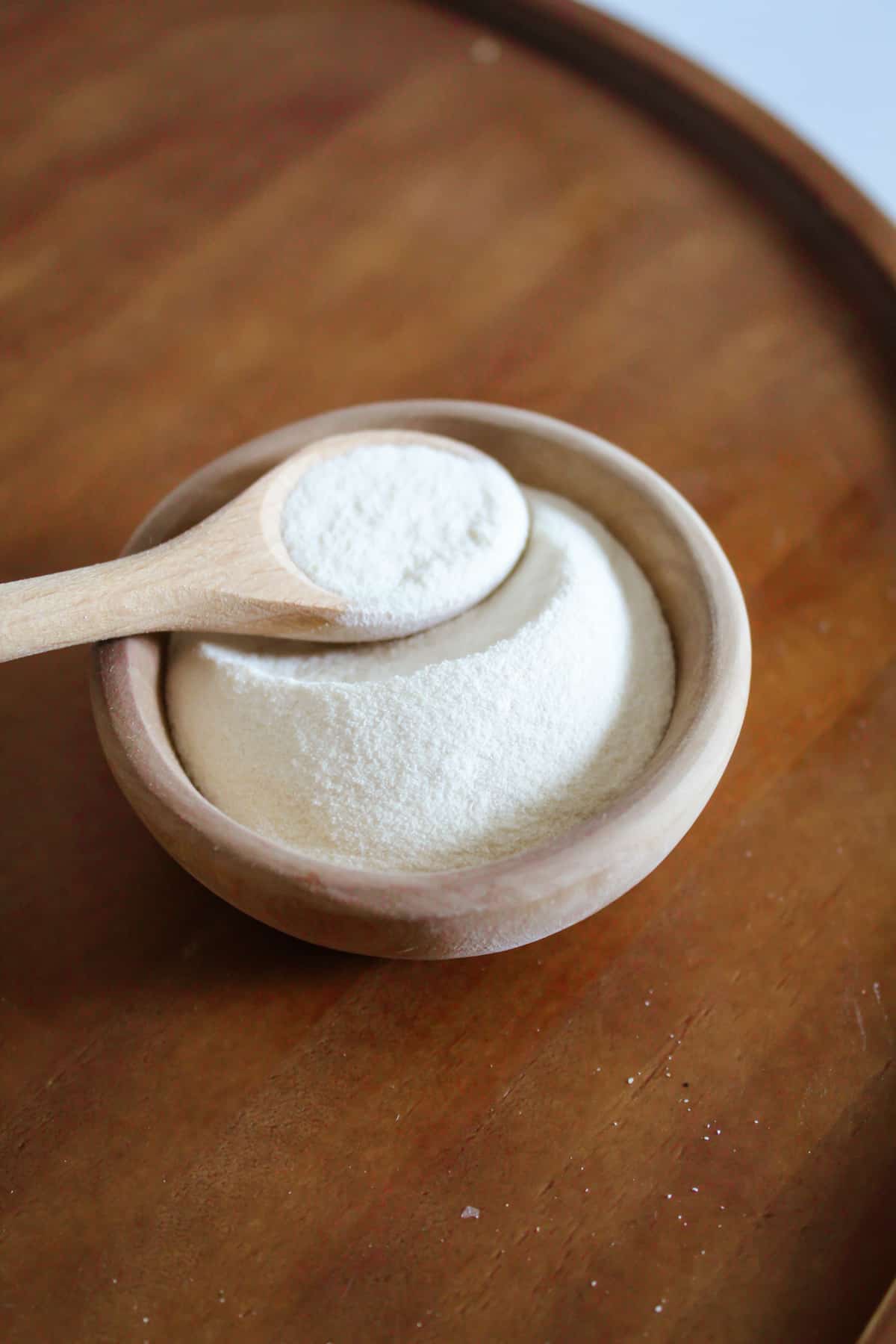How To Bring Eggs To Room Temperature
A common and helpful tip in baking is to bring the ingredients to room temperature before mixing anything. This is especially true for eggs. If you’ve done your fair share of baking, you’ll know that many recipes call for eggs to be at room temperature. Since eggs need to be kept in the refrigerator, home bakers often wonder what is the best way to bring eggs to room temperature.
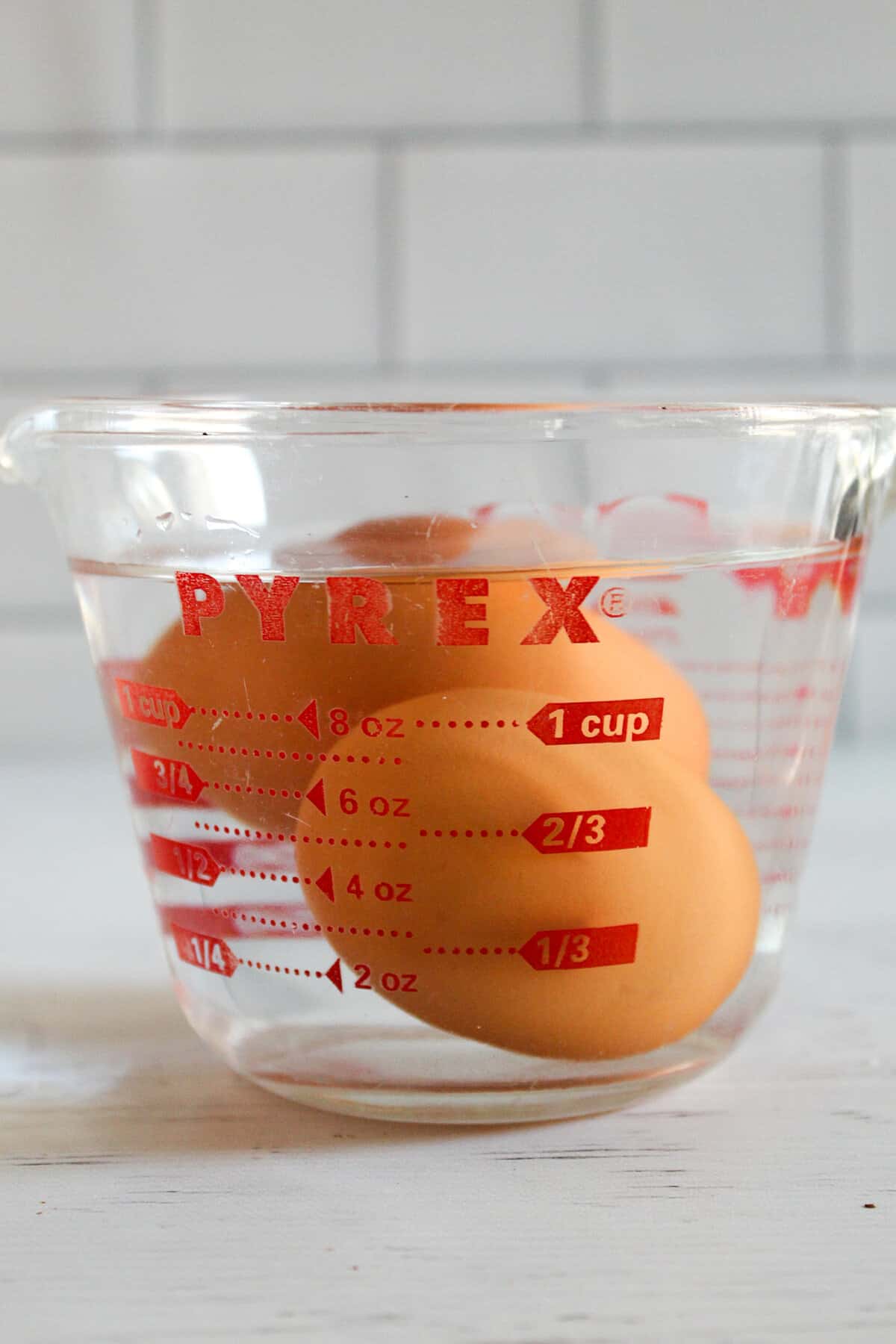
While you can leave your eggs out on the counter for a while to warm up before you start baking, this takes at least 30 minutes and requires some forethought. A quick and easy way to bring eggs to room temperature is to float the eggs in a cup of warm water. Leave them in the water for 10 to 15 minutes while you get your ingredients and equipment out, and they’ll be ready to go!
Table of Contents
Use those room temperature eggs in these recipes – gluten free molasses cookies, oat flour banana bread and amazing gluten free white bread!
Table of contents
Why do eggs need to be at room temperature?
So why do all these recipes call for room temperature eggs? The answer is simple: ingredients mix together more easily and thoroughly when they aren’t cold. If you need to cream butter, sugar, and eggs together, it’ll be a much easier job if they are all at room temperature.
The mixing part of any recipe can be improved by using room temperature eggs. You’ll find that eggs incorporate into the mixture much better when they’re not straight from the refrigerator.
How long it takes
If you use the water trick and place the eggs in a cup of warm water, it should only take 10 to 15 minutes for the eggs to warm up. If you just leave the eggs out on the counter and wait for them to come to room temperature, you’ll be waiting 30 minutes or more. For this reason, I highly recommend using the warm water method.
Haven’t we all tried to let everything sit out and then after a few minutes were too impatient and started baking anyway? It’s worth it to start a few minutes early by floating the eggs in warm water. You’ll thank yourself later!
Is it safe to bake with room temperature eggs?
Baking with eggs that have warmed up to room temperature is completely safe. Just make sure you keep your eggs refrigerated the rest of the time and take a few out to warm up before you bake with them.
Can eggs be left out of the refrigerator?
In general, eggs purchased in the United States shouldn’t be stored outside of the refrigerator. This isn’t like butter, where some people keep theirs in the refrigerator and some leave theirs out. Eggs that aren’t kept in the refrigerator will spoil after a while.
I recommend leaving eggs out for a little while when you are about to use them for baking. By using the warm water method, the eggs aren’t outside of the refrigerator for very long before they are used for baked goods like this gluten free white bread or these gluten free dinner rolls.
How to bring a separated egg to room temperature
The warm water method works great if you’re using eggs that haven’t been cracked open yet, but what about when you’ve already separated the eggs? You’re in luck, because there is a method for warming up separated eggs, too!
First, you’ll want to make sure the cup holding the separated eggs can fit underneath a turned-over measuring glass (2 or 4-cup measuring glass or even a bowl). Separate your eggs into a small cup or bowl. Fill the measuring glass with 1 to 2 cups of water and microwave for 1 to 2 minutes. Dump the hot water out and set the glass upside down over the cup of eggs. Let this sit for 10 minutes. The warmth from the hot measuring glass will warm up the eggs, then they’ll be ready to be used!
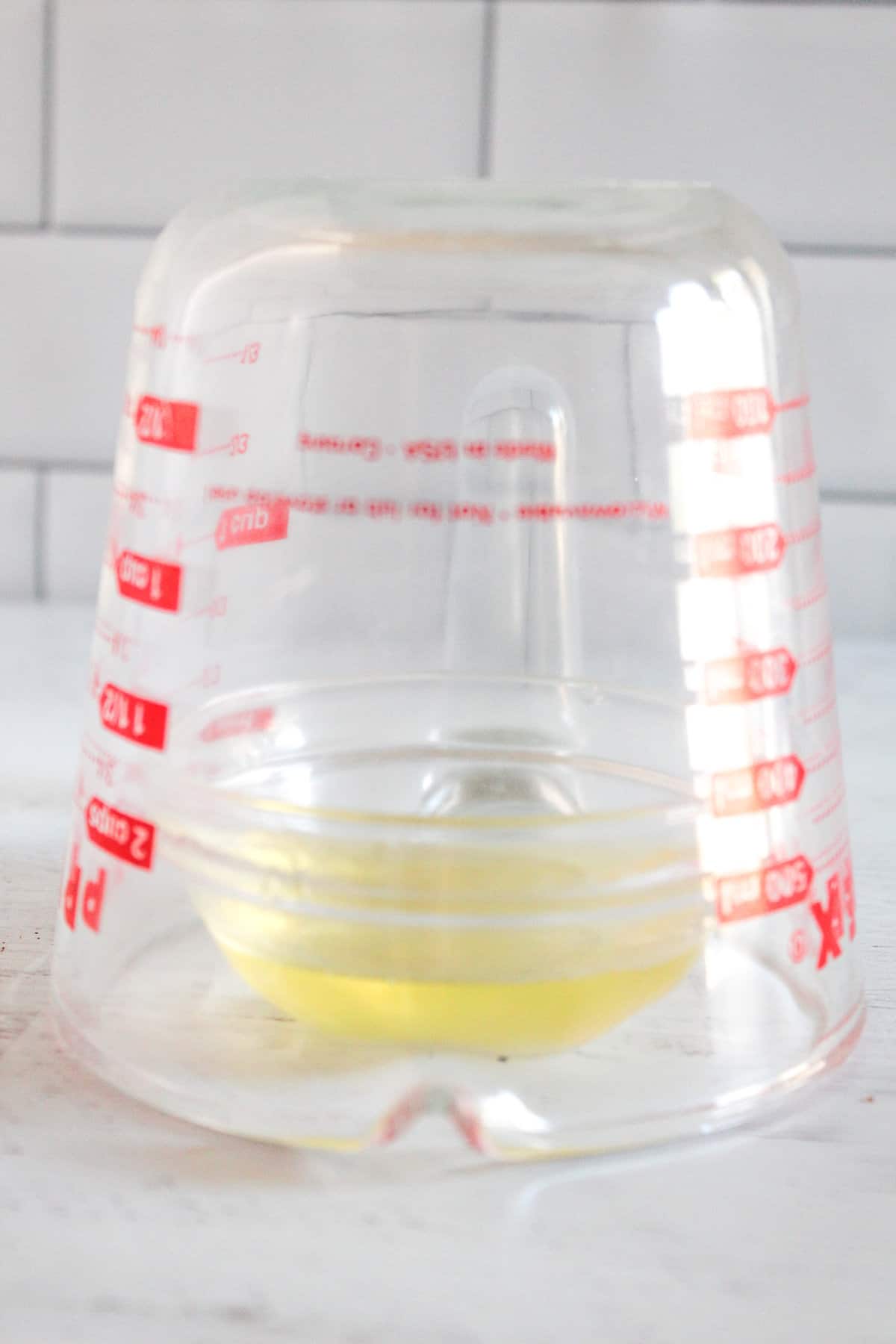
Is it ever okay to use cold eggs in gluten free baking?
There isn’t really any circumstance where it’s a good time to use cold eggs in gluten free baking. Using room temperature eggs is generally a good thing to do in any recipe, even if it doesn’t specifically say to. Whatever batter or dough you’re mixing will combine more thoroughly if the eggs aren’t at a shockingly different temperature than the rest of the mixture. The exception to this is if the eggs will be cooked (rather than mixed into a batter) like in this make-ahead sausage casserole.
Room temperature eggs FAQs
Yes, I highly recommend baking with room temperature eggs. The temperature of the ingredients has a big impact on how well they combine. I think it’s worth the extra time to remove them from the refrigerator and let them warm up!
It takes about 30 minutes for eggs to come to room temperature if they’re just sitting out. It only takes about half that time if they are placed in a cup or bowl of warm water.
Yes, as long as your eggs are normally refrigerated, it’s perfectly safe to let them warm up to room temperature before baking them.

How to Bring Eggs to Room Temperature
Ingredients
Method
- In a 1 cup glass measuring cup, warm 1/2 cup water to 110F. Microwave at full power is about 30 seconds.
- Remove from the microwave and gently place 1 egg in the water.
- Let float for 5-10 minutes. Remove from water and dry the shell before using.
- Increase the water and the size of the measuring cup if warming multiple eggs.
- Make sure the bowl you are using for the separated eggs fits underneath an overturned measuring cup you plan on using.
- Measure 1/2 cup of water into a large glass measuring cup. Heat the water to boiling.
- Remove from the microwave and dump the boiling water out. Immediately turn the cup over and place it over the bowl of separated eggs.
- Let sit for 10 minutes.
- Repeat with remaining separated egg if they both did not fit under the measuring cup.
Notes
- The amount of water can vary. For more water, increase the microwave time, for less, decrease it.
- Eggs are easier to separate when they’re cold so separate them first, then warm.
